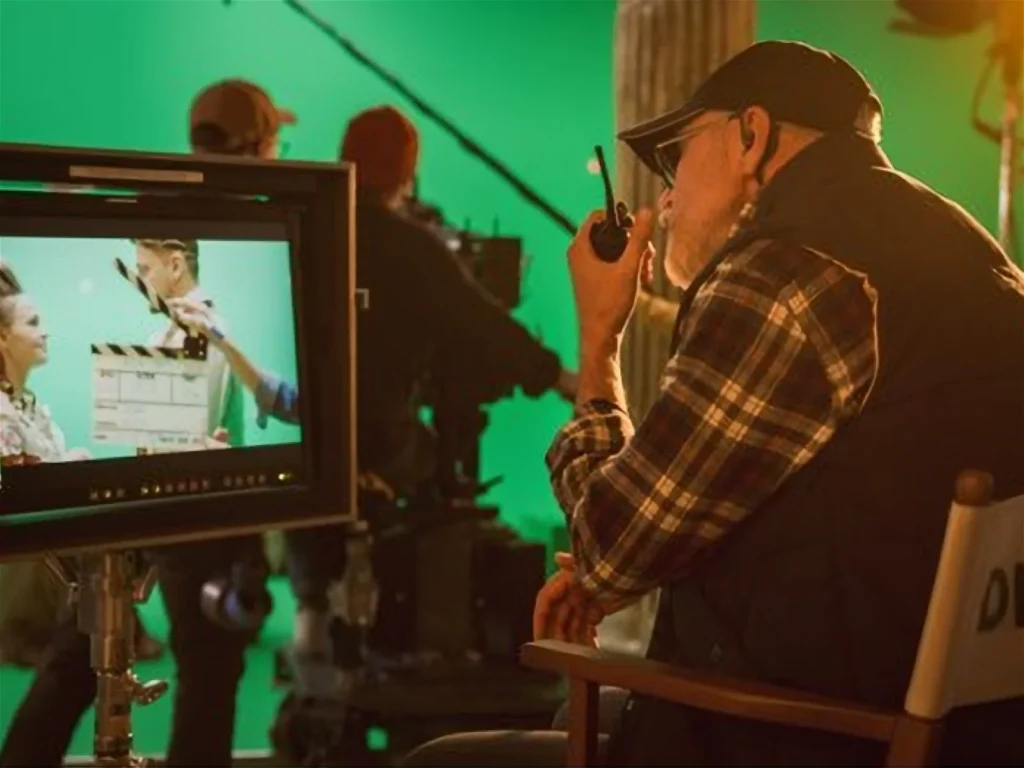In the world of entertainment, actors are often seen portraying different characters on screen, whether they be dramatic or comedic roles. However, some actors prefer to stay away from the spotlight while still making a significant contribution to the industry. Voice actors are the unsung heroes of the film industry and, although they do not appear on screen, they play a monumental role in bringing the characters we love to life. At first glance, it may seem like vocal performance and filming a movie are the same thing. But once you dive into the world of voice acting, you realize there is a big difference between the two. Both types of performance require a huge amount of skill and talent, but they use different techniques to convey emotions and character development.
In this blog post, we will explore the fundamental differences between film actors and voice actors. We will also take a closer look at some of the key skills required to become a successful voice actor in the entertainment industry.
1. Film actors usually work in front of the camera and are responsible for portraying the physical actions and emotions of a character
In the entertainment industry, there are two types of actors: film actors and voice actors. Film actors typically work in front of the camera and are responsible for portraying the physical actions and emotions of a character. They require training to master these skills and must be able to connect with their audience emotionally. In contrast, voice actors work in a studio and are tasked with bringing animated characters to life. They strive to deliver their lines convincingly, relying solely on their voice to express emotions. Dubbing is also an important role for voice actors, especially in international markets. The Moroccan city of Casablanca, for example, is renowned for the quality of its dubbing industry, which attracts actors and productions to the region.
2. The voice actors, on the other hand, work in a recording studio and use only their voices to bring the characters to life
In the field of acting, there are many ways to bring a character to life. The two most common forms of interpretation are on-screen acting and voice acting. While on-screen actors usually work on a set with a full production team and other actors, voice actors usually work in a recording studio, using only their voice to give life to a character. This process is known as dubbing, where recorded dialogues are added to the original film or TV show in post-production. Many recording studios around the world specialize in voice acting and dubbing, notably in the Casablanca region of Morocco. Actors in these studios must have strong vocal abilities and be able to create distinct and memorable characters using only their voice. Creating believable performances through voice acting requires unique skills in inflection, tone, and texture, which are honed over years of practice and training. Whether it’s on-screen acting or voice acting, both require as much talent, dedication, and commitment to deliver an authentic and captivating performance.
3. Voice actors often specialize in character voices, accents, and dialects, while film actors may need to acquire these skills for a specific role
When it comes to acting, there are many different specialties and skills to consider. For example, voice actors often specialize in character voices, accents, and dialects, which may require a high level of versatility and specific techniques. In contrast, film actors may need to acquire these skills for a specific role, but they generally focus on other aspects of performance, such as facial expressions and physical movements. These differences can be particularly important in a studio or dubbing context, where voice actors may have to quickly switch between characters or accents. For example, the Casablanca studios in Morocco often require experienced voice actors who can accurately and convincingly interpret a whole range of different roles and emotions. It is essential to understand these differences in order to hire the right actor for the job, whether it be for a film, television show, or other production.
4. Vocal interpretation may require additional technical skills, such as a good microphone technique and the ability to reproduce lip movements, while film interpretation may require more physical training or stunt work
When examining the differences between film actors and voice actors, it is important to note the specific technical skills required for each profession. Vocal interpretation may require more technical skills, such as good microphone technique and the ability to reproduce lip movements, without the advantage of physical performance. Conversely, the profession of film actor may require more physical training or stunt work in order to make a convincing performance. These differences are particularly notable in the world of dubbing and studio recording, where voice actors often have to reproduce the lip movements of actors on screen while playing in a soundproof booth. In Casablanca, Morocco, for example, many voice actors work in dubbing studios that require a particular set of skills, including the ability to project emotions, control pitch, and use their voice to convey nuances of character development in a way that actors on screen may not have to do. Ultimately, whether one chooses to pursue a career as a voice actor or film actor, each path requires a unique set of skills and talents.
5. The two types of actors require strong interpretive abilities and the ability to convey emotions and tell a story through their performance
Although there are differences between film actors and dubbing actors, both require solid acting skills and the ability to convey emotions and tell a story through their performance. Working in the studio is common for both types of actors as filming actors often perform automatic dialogue replacements (ADR) in post-production, while voice actors are generally hired for dubbing projects in the studio. An example of a studio that offers dubbing services is located in Casablanca, Morocco. In this studio, both types of actors must pay special attention to the emotions and tone of their performances in order to match the lip movements and expressions of the original film or show. Although there may be differences in technical requirements and techniques used for filming and dubbing, the heart of both professions lies in the ability to bring a character to life and connect with an audience on an emotional level.
In conclusion, whether you aspire to pursue an acting career or are simply curious about the industry, it’s important to understand the difference between a movie actor and a voice actor. While both require acting skills and talent, the mediums in which they work and the techniques they use are vastly different. Whether on screen or behind the microphone, both types of actors are integral parts of the entertainment industry and play a crucial role in bringing our favorite stories and characters to life.

